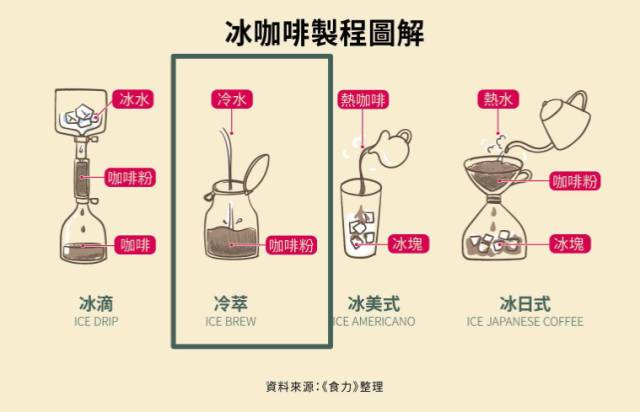How to drink instant coffee powder? No, I haven't been drinking instant for years!

Professional coffee knowledge exchange more coffee bean information please follow the coffee workshop (Wechat official account cafe_style)
I came into contact with instant coffee when I was in college.
Later, when I worked, I spent more time making coffee shops and drinking freshly ground coffee. I haven't been in contact with instant coffee for a long time. Now when I come into contact with high-quality coffee, I have begun to drink fine coffee, let alone instant coffee, because instant coffee is not to my taste, especially that kind of milk flavor, and it's easy to get fat.
Recently, we have paid attention to a piece of news that Chinese coffee enterprises have been successful in replacing fat planting with "Walnut 007" in the world. It is reported that the product uses "Walnut 007" to completely replace the fat plant powder, which not only injects new flavors into the new product, but also avoids the harm that the plant fat powder brings to people's health. It mainly plays the "green food brand" and allows consumers to drink green and healthy three-in-one coffee, mainly because the plant fat powder is not very healthy.
The "panic" caused by the end of fat planting
It is reported that plant fat powder (commonly known as "cream") is made by hydrogenation and drying of refined vegetable oil at high temperature. the low protein and saturated fatty acids it contains are not easily absorbed by the human body, and eating too many saturated fatty acids will lead to symptoms such as acid reflux and nausea. It is an unhealthy food additive. Especially in the process of hydrogenation, it is easy to lead to the modification of vegetable oil and the production of excessive trans fatty acids. Both fatty acids have adverse effects on human health, especially trans fatty acids can cause damage to cardiovascular health.
In real life, plant fat powder is widely used in food production and processing, such as bread and pastry. Especially in three-in-one coffee, milk tea and other beverage ingredients, the plant fat powder content is relatively high. For example, the three-in-one coffee, which has the highest market share in China, has a plant fat powder content of close to 2 ppm. More and more Chinese consumers report that drinking three-in-one coffee or milk tea with high plant fat powder content is prone to uncomfortable symptoms such as fever and physical fatigue.
Over the years, fat plant powder has become an unspeakable "secret" in the food industry. The industry has not found a substitute for fat plant powder, so it can only be used "on". In recent years, a number of mainstream media in China have reported that trans fatty acids have great health risks, saying that "trans fatty acids are a ticking time bomb on the table", causing great unease in the industry and the public. Relevant domestic departments and experts have also come forward to say that excessive intake of trans fatty acids does increase the risk of cardiovascular and cerebrovascular disease.
To avoid the risk of excessive intake of trans fatty acids, the World Health Organization (WHO) recommended in 2003 that the energy supply ratio of trans fatty acids should be less than 1 per cent. The results of "dietary intake level and risk assessment of trans fatty acids among Chinese residents" released by China's National Food Safety risk Assessment Center in 2013 showed that the energy supply ratio of trans fatty acids in Beijing, Guangzhou and other big cities was 0.34%, which was much lower than the recommended value of WHO.
Important Notice :
前街咖啡 FrontStreet Coffee has moved to new addredd:
FrontStreet Coffee Address: 315,Donghua East Road,GuangZhou
Tel:020 38364473
- Prev

There are N ways to open cold coffee-your summer will never be monotonous!
Professional coffee knowledge exchange more coffee bean information Please pay attention to the coffee workshop (Wechat official account cafe_style) cold extracted coffee is standard in summer, if you are also a true fan of cold extract, then you might as well try different positions with us. Cold extracted / Cold brewed Coffee (COLD BREW) the concept of cold extracted coffee is similar to that of cold brewed tea. During the extraction process, the coffee beans are ground and injected into the cold.
- Next

How to use professional coffee machine to make espresso Espresso correctly?
Professional coffee knowledge exchange more coffee bean information please follow the coffee workshop (Wechat official account cafe_style) espresso how to correctly use the professional coffee machine to make espresso HOW TO MAKE PROPER COFFEE BAR espresso have you ever noticed how the barista or waiter makes coffee when you go to the coffee shop to order coffee? Gambero Rosso will sue
Related
- Beginners will see the "Coffee pull flower" guide!
- What is the difference between ice blog purified milk and ordinary milk coffee?
- Why is the Philippines the largest producer of crops in Liberia?
- For coffee extraction, should the fine powder be retained?
- How does extracted espresso fill pressed powder? How much strength does it take to press the powder?
- How to make jasmine cold extract coffee? Is the jasmine + latte good?
- Will this little toy really make the coffee taste better? How does Lily Drip affect coffee extraction?
- Will the action of slapping the filter cup also affect coffee extraction?
- What's the difference between powder-to-water ratio and powder-to-liquid ratio?
- What is the Ethiopian local species? What does it have to do with Heirloom native species?

